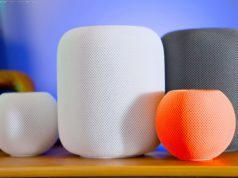Now that hearing aids are available over the counter, the future of hearing health is self-assessment, tele-audiology, and hearing aids you program at home.
The Food and Drug Administration (FDA) has established a new “over-the-counter” (OTC) category for hearing aids. It lets adults with perceived mild-to-moderate hearing loss buy hearing aids from general retailers and online. In the past, these devices were strictly controlled and required a visit to an audiologist.
Scrapping some of the old regulations is intended to increase access to hearing health by eliminating barriers and lowering costs within the hearing aid industry. It should also encourage a number of new entrants, which could significantly increase choice. So what does the new normal look like for hearing aids?
To start with, most hearing aids will fall into the new OTC category. That means adults will be able to buy them from any store, pharmacy, online shop, or other place that sells them. The regulation doesn’t even require age verification. The OTC category will cover a variety of hearing aid designs including all air-conduction models within certain technical specifications. Most importantly, they will not require a visit to an audiologist. If you think you could benefit from a hearing aid, you’ll be able to choose from a variety of self-assessment tests to determine what you need.
Air-conduction hearing aids are currently the most common type of hearing aid. When you think of a hearing aid, you’re probably picturing an air-conduction model. They use little microphones to pick up sound, an amplifier to adjust the sound, and a receiver (or speaker) to deliver the sound into your ear. OTC hearing aids will have limits on how much they can amplify sound.
These limits will still provide enough amplification to treat mild to moderate hearing loss, without being so loud they could actually harm someone’s hearing. They’re intended for people with perceived mild to moderate hearing loss. But let’s talk about “perceived.”
Self-assessment will be incredibly convenient, especially for folks who live considerable distances from their closest audiologist.



![[Video] Galaxy Unpacked July 2024: Unfold Your Story](http://nhub.news/wp-content/uploads/2024/07/thumb8c9f8765765c8bb2b6c5c858a65631b9-238x178.jpeg)


